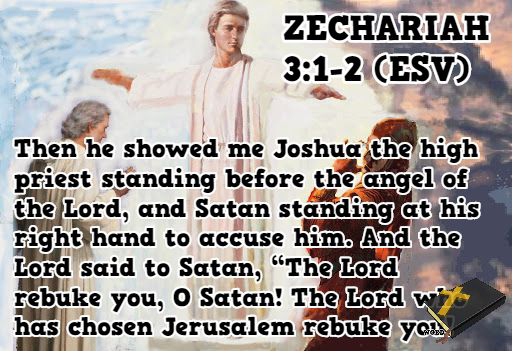One day Christ’s critics asked Him, “Teacher, which is the greatest commandment in the Law?” (v. 36 NIV). His answer is a timely reminder to both leaders and followers; it includes those who sit in the pews and those who stand in the pulpit. “Love the Lord your God with all your heart…all your soul and all your mind. This is the first and greatest commandment.” As a leader you must never leave a question in anyone’s mind as to who is God—and who isn’t. Namely, yourself! God said, “You shall have no other gods before Me” (Ex 20:3 NKJV). And that’s important, because you’re never in greater danger than when people begin to praise you. Yes, we must teach people to respect, honor and reward good leadership, but the Christlike leader discourages adulation and shies away from the limelight. John the Baptist was so successful as a preacher that when he got through speaking, his audience flocked toJesus. Speaking of it, Christ later said, in essence, “John, you did your job well!” Apparently John agreed, for he said, “He must increase, but I must decrease” (Jn 3:30 NKJV). Isaiah wrote, “In the year that King Uzziah died, I saw the Lord sitting on a throne, high and lifted up” (Isa 6:1 NKJV). The king had to die before Isaiah saw the Lord. Only when a leader becomes impervious to applause and approval and dies to ego, is God glorified in his or her leadership. Indeed, when Christ alone is exalted, the God-called leader smiles and says, “Thank You, Lord—that’s how You intended it.”
Friday, 11 February 2022
Transform Your Mind
Hebrew 13:6: "Hence we can confidently say, "The Lord is my helper; I will not be afraid. What can anyone do to me?"
Your life will move in the direction of your most dominant thoughts. If you’re constantly down on yourself thinking you’ll never get ahead, then you won’t. But if you’ll choose to believe that you are an overcomer, that you have victory up ahead, that God has good things in store for your future; then that’s what you’ll end up with.
That’s why it’s so important to make sure our thoughts are the same as God’s thoughts. Just like a computer, whatever you allow into your mind is what will come out in your attitude and actions. The more you meditate on God’s Word, the more you will transform your thinking to be like God’s thinking.
Choose today to focus on the Word of God. Allow your mind to be renewed. As you focus on God’s thoughts, you will become more like Him, and you will see His hand of blessing in every area of your life.
“If you love those who love you, what credit is that to you?” Lk 6:32 NKJV
The love talked about in Scripture isn’t a sentimental emotion that gives you goose bumps. It’s compassion, caring, and concern for the well-being of another. It’s based on commitment, not convenience. It’s an act of your will, not a reflex of your emotions. Jesus asks a question that’s a real traffic-stopper. “If you love only those who love you, why should you get credit for that? Even sinners love those who love them. And if you do good only to those who do good to you, why should you get credit?” (vv. 32-33 NLT). Loving is the hardest thing you’ll ever do, and it will require all the grace God can give you. Jesus continues: “Love your enemies! Do good to them! Lend to them without expecting to be repaid. Then your reward from heaven will be very great, and you will truly be acting as children of the Most High, for he is kind to those who are unthankful and wicked. You must be compassionate, just as your Father is compassionate. Do not judge others, and you will not be judged. Do not condemn others, or it will all come back against you. Forgive others, and you will be forgiven. Give, and you will receive. Your gift will return to you in full—pressed down, shaken together to make room for more, running over…The amount you give will determine the amount you get back” (vv. 35-38 NLT). You say, “That’s a high standard!” Yes, that’s why it’s the winning strategy.
Friday, 4 February 2022
WHAT IS THE BOTTOMLESS PIT (REVELATION 9:1-12)?
°°°°°°°°°°°°°°°°°°°°°°°°°°°°°°°°°°°°°°°°°°°°°
“Bottomless pit” is one word in the Greek of the New Testament and is literally the “abyss,” which means “bottomless, unbounded, the pit, or the immeasurable depth.” Roman mythology featured a similar place called Orcus, a very deep gulf or chasm in the lowest parts of the earth used as the common receptacle of the dead and, especially, as the abode of demons. The bottomless pit of Revelation 9:1-12 holds a unique type of demon. It is also the home of the beast who makes war against the two witnesses (Revelation 11:7-8). At the beginning of the millennial kingdom, the bottomless pit is the place where Satan is bound (Revelation 20:1-3). At the end of the thousand years, Satan is released and promptly leads an unsuccessful revolt against God (Revelation 20:7-10).
The bottomless pit may be associated with a place called Tartarus. This Greek word is translated as “hell” and is used only once in Scripture, in 2 Peter 2:4. It refers to the place where “angels who sinned” are reserved in chains of darkness for judgment. The NIV says these angels in Tartarus are held in “gloomy dungeons.” These same angels are also mentioned in Jude 6 as the angels who “abandoned their own home” (cf. Genesis 6:2).
If Tartarus is the same as the Abyss, then the inhabitants of the bottomless pit are the same angels who sinned and left their first habitation. God uses the bottomless pit as a holding place for the most evil of angels, including Satan himself and those who tried and failed before the Flood to thwart God’s plan to bring the Seed of the woman into the world (Genesis 3:15). The inhabitants of the Abyss are released for a very short time during the last three and a half years of the tribulation to fulfill God’s purpose, namely, to torment the wicked (Revelation 9:5). These prisoners of the bottomless pit hate humanity and seek to destroy them, but God controls their terror and limits their power.
Thursday, 3 February 2022
WHY WERE MICHAEL AND SATAN DISPUTING OVER THE BODY OF MOSES (JUDE 9)?
Jude verse 9 refers to an event which is found nowhere else in Scripture. Michael had to struggle or dispute with Satan about the body of Moses, but what that entailed is not described. Another angelic struggle is related by Daniel, who describes an angel coming to him in a vision. This angel, named Gabriel in Daniel 8:16 and 9:21, tells Daniel that he was “resisted” by a demon called “the prince of Persia” until the archangel Michael came to his assistance (Daniel 10:13). So we learn from Daniel that angels and demons fight spiritual battles over the souls of men and nations, and that the demons resist angels and try to prevent them from doing God’s bidding.
Jude tells us that Michael was sent by God to deal in some way with the body of Moses, which God Himself had buried after Moses’ death (Deuteronomy 34:5-6).
Various theories have been put forth as to what this struggle over Moses’ body was about. One is that Satan, ever the accuser of God’s people (Revelation 12:10), may have resisted the raising of Moses to eternal life on the grounds of Moses’ sin at Meribah (Deuteronomy 32:51) and his murder of the Egyptian (Exodus 2:12).
Some have supposed that the reference in Jude is the same as the passage in Zechariah 3:1-2, “Then he showed me Joshua the high priest standing before the angel of the LORD, and Satan standing at his right hand to accuse him. And the LORD said to Satan, ‘The LORD rebuke you, O Satan!’” But the objections to this being the same incident are obvious: (1) The only similarity between the two passages is the expression, “the Lord rebuke you.” (2) The name “Michael” does not occur at all in the passage in Zechariah. (3) There is no mention made of the “body of Moses” in Zechariah, and no allusion to it whatever.
It has also been supposed that Jude is quoting an apocryphal book that contained this account, and that Jude means to confirm that the account is true. Origen (c. 185–254), an early Christian scholar and theologian, mentions the book “The Assumption of Moses” as extant in his time, containing this very account of the contest between Michael and the devil about the body of Moses. That book, now lost, was a Jewish Greek book, and Origen supposed that this was the source of the account in Jude.
The only material question, then, is whether the story is “true.” Whatever the origin of the account, Jude does in fact seem to refer to the contest between Michael and the devil as true. He speaks of it in the same way in which he would have done if he had spoken of the death of Moses or of his smiting the rock. And who can prove that it is not true? What evidence is there that it is not? There are many allusions in the Bible to angels. We know that the archangel Michael is real; there is frequent mention of the devil; and there are numerous affirmations that both bad and good angels are employed in important transactions on the earth. As the nature of this particular dispute over Moses’ body is wholly unknown, conjecture is useless. We do not know whether there was an argument over possession of the body, burial of the body, or anything else.
These two things we do know, however: first, Scripture is inerrant. The inerrancy of Scripture is one of the pillars of the Christian faith. As Christians, our goal is to approach Scripture reverently and prayerfully, and when we find something we do not understand, we pray harder, study more, and—if the answer still eludes us—humbly acknowledge our own limitations in the face of the perfect Word of God.
Second, Jude 9 is the supreme illustration of how Christians are to deal with Satan and demons. The example of Michael refusing to pronounce a curse upon Satan should be a lesson to Christians in how to relate to demonic forces. Believers are not to address them, but rather to seek the Lord’s intervening power against them. If as powerful a being as Michael deferred to the Lord in dealing with Satan, who are we to attempt to reproach, cast out, or command demons?
Wednesday, 2 February 2022
IS IT POSSIBLE TO SELL YOUR SOUL TO THE DEVIL?
The Bible has no instance of a person “selling his soul” to Satan, and it never implies that making a bargain with the devil is possible. Here is some of what Scripture does reveal about Satan:
1) Satan has power enough to oppose even the angels (Jude 9; Daniel 10:12-13).
2) Satan seeks to deceive by masquerading as an angel of light (2 Corinthians 11:14-15).
3) God has provided the means of defending ourselves against Satan’s attacks (Ephesians 6:11-12).
4) Satan’s power is limited by God’s will (Job 1:10-12; 1 Corinthians 10:13).
5) As “the god of this world,” Satan has dominion over those who live without Christ in the world (2 Corinthians 4:4).
Surely, there are those who suffer under direct satanic control, such as the young medium of Philippi (Acts 16:16-19). And there are those who have devoted themselves to the devil’s work, such as the sorcerers Simon (Acts 8:9-11) and Elymas (Acts 13:8). However, in each of these three examples, the power of God prevails over Satan’s slavery. In fact, Simon is offered a chance to repent (Acts 8:22). Obviously, there had been no irrevocable “selling” of Simon’s soul.
Without Christ, we are all under condemnation of death (Romans 3:23). Before we are saved, we are all in bondage to the devil, as 1 John 5:19 says, “The whole world lies in the power of the evil one.” Praise the Lord, we have a new Master, One who can break the chains of any sin and set us free (1 Corinthians 6:9-11; Mark 5:1-15).
Tuesday, 1 February 2022
Subscribe to:
Comments (Atom)











